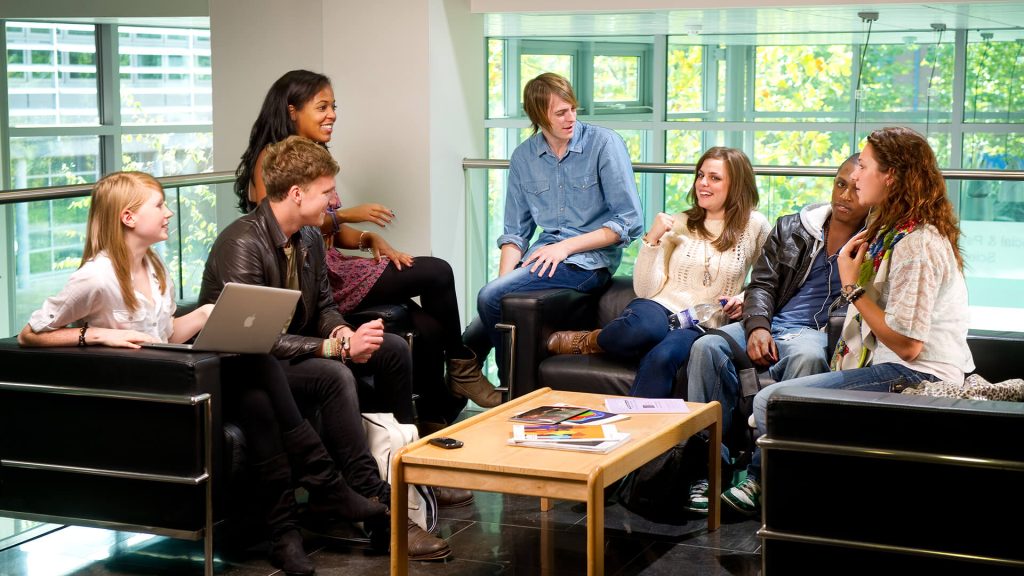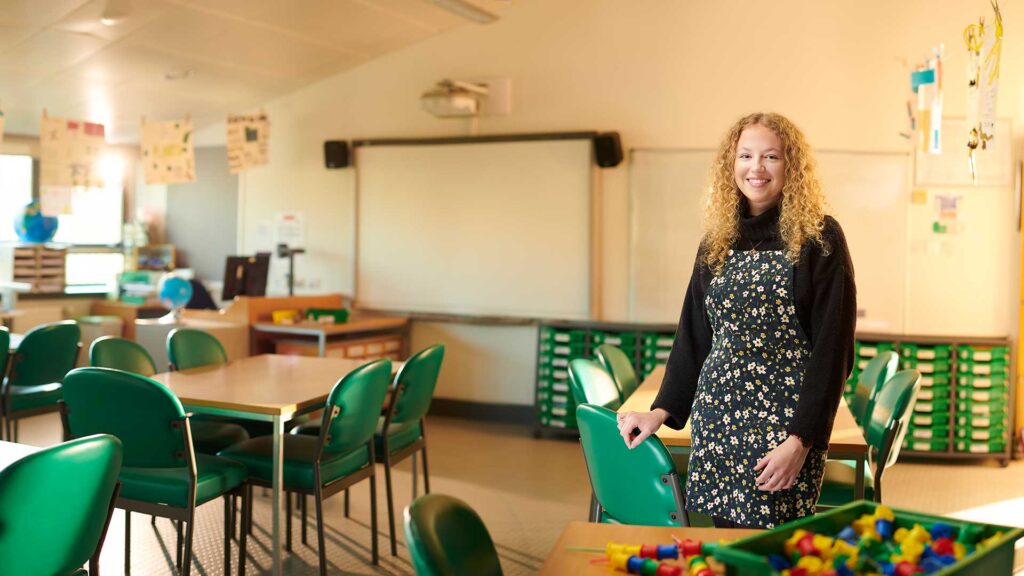Secondary Science (Chemistry) with QTS (11-16) PGCE
GOV.UK code: M757
How do we connect science to young people’s lives? Spark curiosity in the classroom and help young minds tackle challenges in chemistry. Inspire the next generation as you gain recommendation for Qualified Teacher Status.
Overview
| Course length: | 1 year full-time |
|---|---|
| Start dates: | September 2024 September 2025 |
| Location: | Edge Hill University |
| Subject(s): | Education and Teaching |
| Faculty: | Education |
| Department: | Secondary and Further Education |
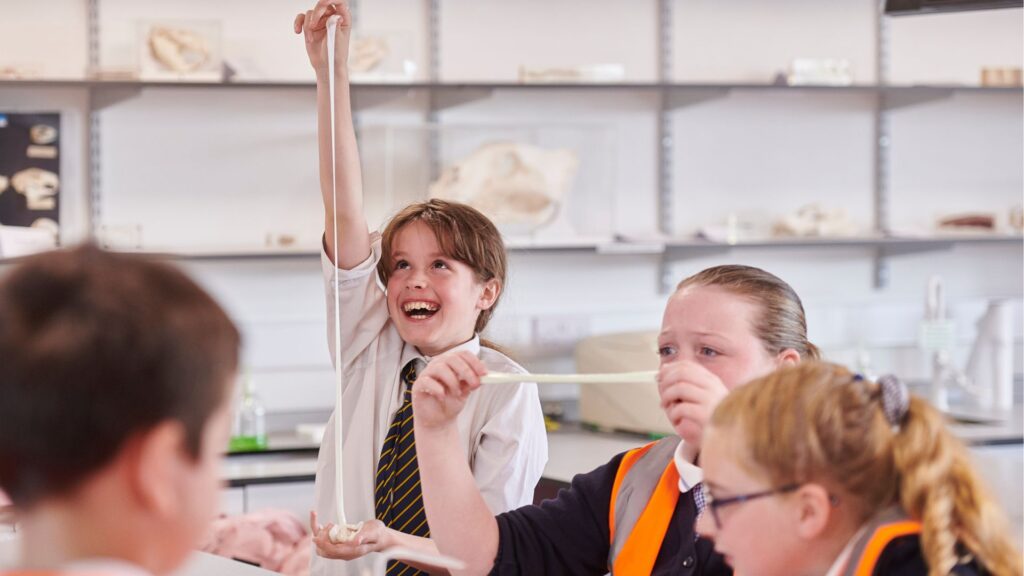
From rates of reaction to nanoparticles, chemistry looks at the structure of the materials that make up everything around us. As a teacher, you’ll inspire pupils to value their science education and open their eyes to the answers chemistry provides.
Our one-year Postgraduate Certificate in Education (PGCE) prepares you to teach the secondary science chemistry curriculum for the 11-16 age range. We’ll be there for you every step of the way as you work towards taking the lead in the classroom.
Our team will introduce the teaching methods and theory you need to develop into a competent, confident secondary school chemistry teacher. You’ll get support from your Personal Tutor whenever you need it, as well as guidance from your expert mentor and placement link tutor on placement.
What does it take to plan a lesson? How do you manage a classroom? Which teaching methods are most effective? Learn from our experts then apply what you’ve learnt to practice. During your 26 weeks on placement, you’ll plan, teach, and assess chemistry lessons with support from your school-based mentor.
Successful completion of the PGCE Secondary Science (Chemistry) with QTS (11-16) programme leads to recommendation for Qualified Teacher Status.
Subject knowledge enhancement
Want to boost or refresh your subject knowledge in chemistry? Our free subject knowledge enhancement course, tailored to your individual needs, will prepare you for teaching the conceptual and applied aspects of chemistry effectively to learners aged 11-16 years.
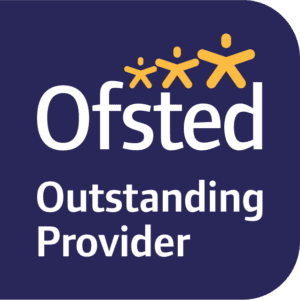
Course features
-
Ofsted outstanding provider for Initial Teacher Education
-
Professional accreditation
-
Professional practice placements
-
International students can apply
What you'll study
Develop into a creative and innovative science teacher as you take in critical teaching theory and explore different teaching and learning styles. Then put it into practice during 26 weeks of classroom-based development.
Start by discovering your subject strengths and areas for development, so we can help you to develop a plan to address any gaps in your knowledge. Then explore learning theories and different teaching methods as you plan, teach, assess, and reflect on the lessons you deliver.
You’ll learn how to choose between experiments and investigative work, group discussions, role play, project work, presentations and examinations as the most appropriate tool for that aspect of the curriculum. In addition, you’ll develop your teaching persona, learn how to manage behaviour and support pupil’s wellbeing as you decide how best to teach each group of individuals.
You’ll develop an excellent working knowledge of health and safety requirements, strategies for maintaining a quality laboratory work environment, and an excellent working knowledge of how to carry out practical lessons and laboratory experiments.
How you'll study
A combination of academic study, group discussion and reflection, and practical, work-based learning in the classroom will give you all the knowledge and skills you need to become a creative and innovative teacher. The programme aims to develop a reflective and a critically analytical approach to education.
You will undertake extensive placements in schools, putting your training into practice through assisting in, and taking responsibility for, classes and working alongside your mentors and peers to further your professional development. The focus initially is on observation and supporting teaching and learning. Your teaching timetable will increase as your training progresses and you become more confident and competent in the classroom.
You will also develop your subject knowledge by participating in numerous activities. In the past, these have included visits to places of scientific and fieldwork interest, guest speakers and GET SET Challenge days in the North West.
You will also undertake Intensive Training and Practice (ITAP) as a specific and focused element of our teacher training curriculum. This is designed to consolidate your knowledge of effective teaching, and enable you to rehearse and obtain feedback from experts on your practice. Our ITAPs are designed to utilise the latest research and technology as well as draw on the outstanding mentors, tutors, and teacher expertise from across our partnership.
Over the course of your training, you will have the opportunity to participate in several days of Intensive Practice focusing on aspects of pivotal practice such as; behaviour management, scaffolding, professional behaviours and questioning.
During periods of ITAP, your timetable may differ and you may be required to attend campus and/or a placement on days outside of the usual pattern.
How you'll be assessed
You will be assessed, through a balanced combination of coursework and portfolio assessments, against both academic criteria and the Standards related to QTS. Various other tasks will enable you to show your competence in ICT, numeracy and literacy and other areas of Science.
Your professional practice will conclude with a final viva that will allow you to demonstrate appropriate achievement against the Teachers’ Standards in order to allow us to make a recommendation for QTS.
Who will be teaching you
The Faculty of Education has been at the forefront of teacher education for over 135 years and today enjoys the enviable position of being one of the country’s leading providers of education, training and research for the children’s workforce.
You will be taught by a dedicated team of knowledgeable, experienced, friendly and supportive tutors who have the welfare of their trainees as a number one priority.
The Edge Hill lead mentors and mentor leadership team play an important part in your teacher training as experts in their field. They have a deep knowledge of the trainee curriculum and support trainees and mentors to make progress providing guidance and support on aspects of the curriculum and assessment.
Entry criteria
Entry requirements
To join this PGCE, you will be expected to have:
- A degree equivalent to UK first-class or second-class honours (2:2 or above) in a relevant subject. Other subjects may be considered if you have an A Level in a relevant subject (or equivalent qualification).
- GCSE English Language or English Literature and GCSE Mathematics at Grade C or Grade 4 or above (or equivalent qualification).
- Satisfactory levels of information and communications technology competence.
- A commitment to, and understanding of, secondary education, demonstrating the personal attributes, values and motivation required to train as a teacher.
For the purposes of initial teacher training, level 2 literacy and numeracy qualifications are not considered as equivalent to GCSE Grade C or Grade 4 in English Language and English Literature and Mathematics.
An interview forms part of the selection process, which can be conducted online or face to face.
If you accept a formal offer from Edge Hill University you will be required to meet the Department for Education’s standards for physical and mental fitness to teach and clearance to work with children. Further information, including a Declaration of Health questionnaire and details of how to apply for a Disclosure and Barring Service (DBS) Enhanced Disclosure will be sent to you after you have firmly accepted an offer.
English language requirements
International students require IELTS 6.5, with a score no lower than 6.0 in each individual component, or an equivalent English language qualification.
If your current level of English is half a band, one band, or one-and-a-half bands lower, either overall or in one or two elements, you may want to consider our Pre-Sessional English course.
How to apply
Apply full-time
Read our guide to applying for PGCEs and Postgraduate Teacher Training to find out more about the application process.
International
Please see our international student pages for further information about how to apply as a prospective international student.
This course is now closed to international applications for 2024 entry.
Should you accept an offer of a place to study with us and formally enrol as a student, you will be subject to the provisions of the regulations, rules, codes, conditions and policies which apply to our students. These are available at www.edgehill.ac.uk/studentterms.
There’s plenty of opportunities to come take a look around campus. Attend one of our open days to see what life at Edge Hill University is all about.
Book an open day
Facilities
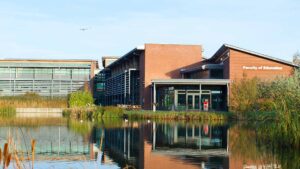 The Faculty of Education enjoys the enviable position of being one of the country’s leading providers of transformative education, training and research for the teaching and education workforce. Housed in a state-of-the-art £9m building, the Faculty of Education enjoys a stunning setting from both its lakeside and piazza buildings.
The Faculty of Education enjoys the enviable position of being one of the country’s leading providers of transformative education, training and research for the teaching and education workforce. Housed in a state-of-the-art £9m building, the Faculty of Education enjoys a stunning setting from both its lakeside and piazza buildings.
Facilities in the lakeside building include a 300-seat lecture theatre, five well-equipped ICT suites, and 18 teaching rooms complete with the latest technology.
Our nearby piazza building houses our Research Hub and our Secondary and Further Education department including a lecture theatre and a number of seminar rooms.
Where you'll study
Faculty of Education
Finance
Tuition fees
UK Full-Time
£9,250
for the course
International
£16,500
for the course
EU/EEA and Swiss students who have settled or pre-settled status under the EU Settlement Scheme, as well as Irish nationals, may be eligible for the UK tuition fee rate.
Financial support
Subject to eligibility, UK students joining this course can apply for a Tuition Fee Loan from the Government to cover the full cost of tuition fees. UK students enrolling on the course may also be eligible to apply for additional funding to help with living costs. If you are a UK student joining this PGCE in academic year 2025/26, you may be eligible to receive a Department for Education bursary worth £29,000 if you have a first class, 2:1 or 2:2 honours degree, or you have successfully completed a PhD or Masters award.
Scholarships
We offer a range of scholarships, which celebrate the determination, commitment and achievement of our students. Many of our scholarships are awarded automatically. There are some however, where you will need to be involved in an application or nomination process. To find out more about our scholarships and check your eligibility, please visit our dedicated scholarships pages.Money Matters
Please view the relevant Money Matters guide for comprehensive information about the financial support available to eligible UK students.EU/EEA and Swiss students who have settled or pre-settled status under the EU Settlement Scheme may be eligible to apply for financial support. Irish nationals can ordinarily apply to Student Universal Support Ireland (SUSI). If you are an EU student who does not have settled or pre-settled status, or are an international student from a non-EU country, please see our international student finance pages.
Course changes
Every effort has been made to ensure the accuracy of this information, however our courses are subject to ongoing review and development. Changing circumstances may necessitate alteration to, or the cancellation of, courses.
Changes may be necessary to comply with the requirements of professional bodies, revisions to subject benchmarks statements, to keep courses updated and contemporary, or as a result of student feedback. We reserve the right to make variations if we consider such action to be necessary or in the best interests of students.

